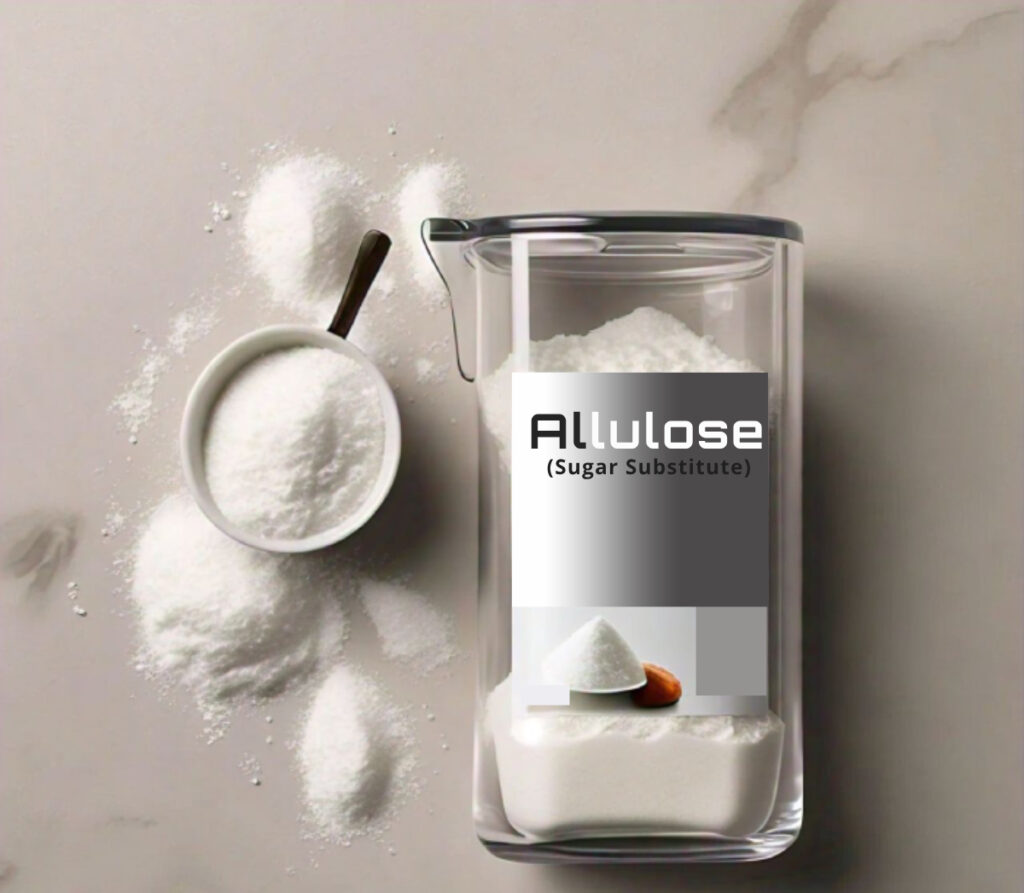Allulose (The Sweet Alternative You Need to Know About)
When it comes to sugar substitutes, the quest for a healthy, natural, and satisfying sweetener has been ongoing for decades. Among the emerging options, allulose has caught the attention of health enthusiasts and researchers alike. Let’s explore the scientific background, discovery, and benefits of this sweetener while comparing it to other sugar alternatives like sucrose, aspartame, stevia, and monk fruit.
Scientific Background of Allulose
Allulose, also known as D-psicose, is a rare sugar found naturally in small quantities in fruits such as figs, raisins, and jackfruit. It belongs to a class of simple sugars called monosaccharides, similar to glucose and fructose. Despite its structural similarity to sugar, allulose behaves differently in the body. The majority of allulose is not metabolized, meaning it provides sweetness without the calories and blood sugar spikes associated with traditional sugar.
Discovery History
The discovery of allulose dates back to the mid-20th century when it was first identified as a natural compound in wheat. However, its potential as a sugar alternative gained attention only in the 1990s when scientists began exploring its metabolic effects. The FDA recognized it as “Generally Recognized As Safe” (GRAS) in 2014, paving the way for its use in food and beverages.
Comparison to Other Sugar Alternatives
1. Sucrose (Table Sugar)
- Calories: High (4 calories per gram).
- Blood Sugar Impact: Causes significant spikes.
- Taste: Sweet but contributes to weight gain and diabetes.
2. Aspartame
- Calories: Minimal.
- Artificial Taste: Some people report an aftertaste.
- Safety Concerns: Linked to controversy over health risks despite FDA approval.
3. Stevia
- Calories: Zero.
- Taste: Sweet but can have a licorice-like aftertaste.
- Source: Natural, extracted from the stevia plant.
4. Monk Fruit
- Calories: Zero.
- Taste: Clean sweetness but expensive and less accessible.
- Source: Natural, derived from monk fruit.
5. Allulose
- Calories: 0.4 calories per gram, significantly lower than sucrose.
- Blood Sugar Impact: Minimal to none.
- Taste: Closest to sugar, without any aftertaste.
Benefits of Allulose
- Low-Calorie Sweetness: It offers just 10% of the calories of sugar while delivering a comparable sweetness level.
- No Blood Sugar Spikes: It has a negligible effect on blood glucose and insulin, making it a great option for diabetics.
- Weight Management: With its low calorie content, allulose can aid in weight loss or maintenance.
- Gut-Friendly: Unlike some sugar alcohols, allulose does not cause digestive discomfort in most individuals.
- Heart Health: Preliminary studies suggest that allulose may help reduce fat accumulation in the liver and improve cholesterol levels.
Why Allulose Deserves Attention
As people become more health-conscious, the demand for natural, low-calorie sweeteners continues to grow. It combines the best of both worlds: the sweetness of sugar and the health benefits of alternative sweeteners. Unlike artificial options, it aligns with the preferences of consumers looking for clean-label, functional ingredients.
In conclusion, allulose is a game-changer in the world of sugar alternatives. With its unique benefits and clean taste profile, it’s no wonder it’s gaining popularity in health circles. If you’re looking for a sweetener that fits your health goals, allulose might just be your new best friend. Visit Fit to Flaunt for more tips on staying healthy and in shape while enjoying life’s little indulgences!

